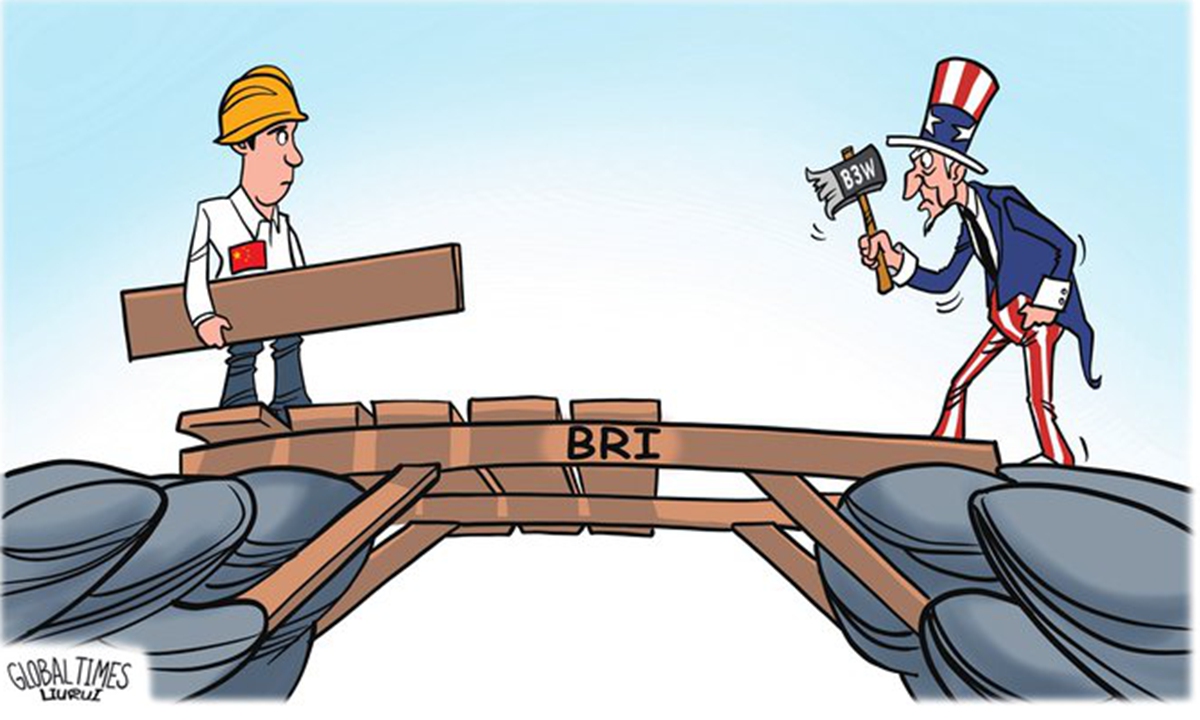Editor’s Note:
More than 150 officials, political party leaders and scholars from 18 countries in Southeast and South Asia had an open dialogue in the city of Kunming in Southwest China’s border province of Yunnan recently. They affirmed the achievements the China-proposed Belt and Road Initiative (BRI) has brought to their countries, expressing expectations on expanding cooperation areas, as well as concerns such as China-US rivalry and the debt risk hyped by some Western media. Global Times (GT) reporter Zhang Changyue interviewed John Ross (Ross), a senior fellow at Chongyang Institute for Financial Studies, Renmin University of China who was also invited to the dialogue, on the characteristics of China’s BRI, the so-called debt trap, and the China-UK relations.
GT: How do you value the BRI? How is it different from the development plan for the developing countries proposed by the Western countries?
Ross: The BRI is quite different from the traditional one given by the US. Despite the fact that the US has turned the other way toward protectionism, it promoted the reduction of tariffs in the process of globalization. But the problem is that the reduction of tariffs gives the financial possibility rather than the practical possibility to try it.
To boost trade, you need infrastructure, including ports, railways, airports, and power supply, which weren’t part of the US model. The BRI is a step forward compared to the US’ post-WWII globalization as the Chinese initiative had the material and the physical means by which to carry out training and build railways and ports.
We have an English saying, “Imitation is the sincerest form of flattery.” Now the US and some Western countries are trying to copy the BRI and catch up with it, but they don’t have the resources to do it.
GT: Some Western media have put China in a negative light, saying many low- and middle-income countries “owe China huge debts” and warning countries of getting in debt to China. What’s your view on this claim?
Ross: This is one of the most stupid economic arguments that I have ever heard as an economist. And it really makes me angry. No big American company became big without borrowing money. Such a claim is contrary to what the US does; it is absolutely pure propaganda.
Of course, if you make a bad investment, then you have a problem. But the problem is whether it’s a good investment, not whether people should borrow money or not. US President Joe Biden never says that American companies should stop borrowing lots of money, neither does he come forward and say the International Monetary Fund should be closed down or the World Bank is very dangerous.
The debt issue got a lot of media attention, but that doesn’t stop countries from borrowing money. More than 150 countries have joined the BRI. They are not united by the same political system or development strategy. They are united by the fact that what they want to do is develop.
The US attempts to present the BRI as though it was some pro-China campaign, but I have to tell you there are over 150 countries in the world that approach China and want to develop themselves. Don’t confuse the question of what is written in the media with what countries have actually done. The BRI is incredibly popular.
GT: It is reported that the British government is examining several options for enhancing China-UK economic ties, including the restart of ministerial trade talks. If such high-level trade talks can be resumed, is it possible that the two countries will promote their cooperation under the BRI?
Ross: I’m not very optimistic, I’m afraid because Britain has decided that it’s going to subordinate its national interests to the US. It is inflicting harm on the British economy and on the British people as the data showed that there has been no increase in the standard of living in Britain for many years.
I’m afraid that Britain is doing one stupid thing after another from Brexit to cutting Huawei out of the 5G system. It’s damaging itself in the interests of the US and it’s not the only European country suffering. So, it would need a big real reversal of the UK foreign policy, but I don’t see that happening any time soon.













